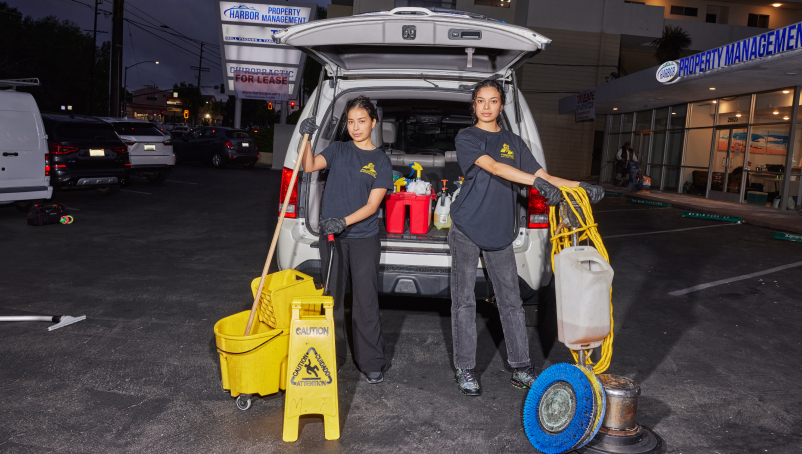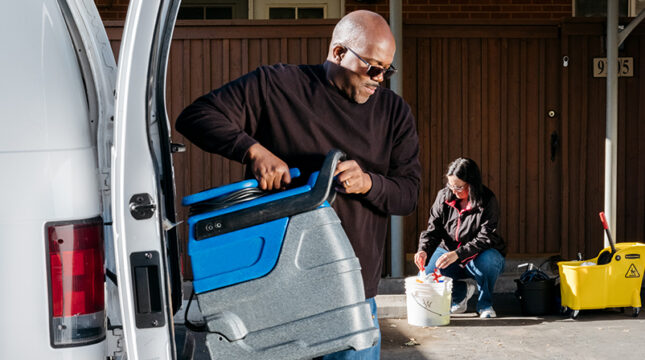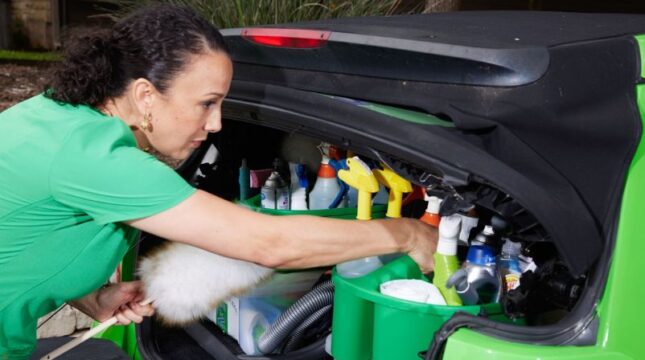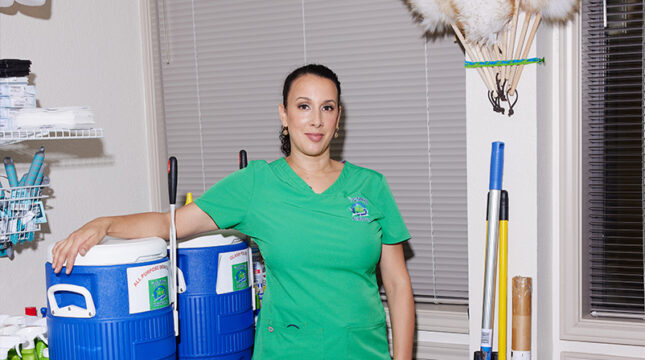How to start a cleaning business in NJ in 6 steps
Kicking off your business idea is going to need a bit more than just sponges and mops. Take on these business operations before you pick up your first cleaning job.
1. Register your business with the state
Businesses must register with New Jersey’s Department of Treasury. Sole proprietors don’t have to register with the state, but any other business structure will have to do so and pay the required fee of $125.
2. File a Doing Business As (DBA)
Sole proprietors and general partners don’t have a specific business registration requirement in New Jersey. Still, filing a Trade Name or DBA (Doing Business As) for your business name with the county clerk’s office is recommended, which may carry a small region-dependent fee.
LLCs, partnerships, and corporations must also file a DBA form if they intend to operate under a name different from the entity’s legal name.
3. Get an Employer Identification Number (EIN)
If you’ve got employees, operate a multi-member LLC, are part of a partnership or run a corporation, you must have an EIN for tax purposes.
The Internal Revenue Service doesn’t require sole proprietorships and single-member LLCs to have an EIN. However, having one makes it easier to separate your business and personal finances. Plus, it shows you’re serious about your company – that it’s not just a hobby.
Getting an EIN won’t cost you anything. You can apply for one online or complete form SS-4 and fax it or mail it to the IRS.
4. Check if you need a sales tax certificate
Some goods and services, such as janitorial and other commercial cleaning, are taxable. You must obtain a sales tax certificate through the New Jersey Division of Taxation.
5. Get your professional license
Some businesses won’t need a cleaning industry license in New Jersey, but it depends on the type of cleaning services you offer. Look into registering with the New Jersey Division of Consumer Affairs to see if your business idea will require a permit.
For example, say you offer cleaning services as part of a more significant contract, such as ongoing maintenance for an extended period of time. You may need to apply for a license as a service contract provider.
Additionally, some specialized cleaning services may require additional local licensing and permits. This could include any business that may affect the environment, including window cleaning, dry cleaning, biohazard cleanup or any use and disposal of hazardous materials. This usually varies by county, so be sure to check with your local authority.
For specialized cleaning services like mold or asbestos removal, you might need to obtain a license from the New Jersey Department of Health.
If you’re not sure whether your business needs a professional license, be sure to check with the local authorities and the New Jersey Division of Revenue.
6. Check for special permits
Depending on the type of cleaning services you offer, you may need to obtain additional permits, including:
- Fire code permit. If you use flammable materials or equipment, you might need a fire code permit from the New Jersey Division of Fire Safety.
- Hazardous materials disclosure. If you use hazardous materials (like certain cleaning chemicals) or produce wastewater that contains pollutants and needs to be properly treated and discharged, you may need to disclose the information to the New Jersey Department of Environmental Protection.
New Jersey cleaning business insurance requirements
Getting business insurance in New Jersey can help protect you and your business from financial loss. The right policies can also make your business look more reliable and professional to potential customers, and help you stand out in a competitive field.
There are many types of insurance for cleaners, but these are some of the most common for cleaners:
General Liability insurance
General liability coverage in New Jersey can help protect against some of the most common business risks and accidents. This liability policy can help shield your business from losses associated with non-employees suffering bodily injury at your business (such as a slip-and-fall injury).
It can also be helpful if you or your employees accidentally cause property damage to someone else’s property — and you’re on the hook to repair or replace it.
Learn more about general liability for cleaning businesses.
Commercial Property insurance
Commercial property coverage can help protect the physical assets you need to do your job, such as a storefront or storage facility, plus equipment and inventory. It can help safeguard your business property against various risks, such as fire or theft.
BOP insurance (Business Owner’s Property)
A business owner’s policy, also called a BOP insurance policy, combines general liability and commercial property insurance coverage into a single, often cost-efficient and convenient package.
A BOP can carry more protection than a single policy. It can help cover damage that you or your employees may inadvertently cause to another person’s property, as well as bodily injury accidents that injure passersby on a slippery floor.
BOP keeps going to help protect your business inventory in the event of vandalism or other covered events.
Workers’ Compensation insurance
In New Jersey, workers’ comp insurance is mandatory. The coverage can help cover work-related injuries or illnesses. This policy can help your business cover medical expenses and wage replacement for employees who get ill or suffer an injury on the job.
Learn more about workers’ comp for cleaning businesses.
Tools & Equipment insurance
If all the cleaning supplies you bought for your work — vacuums, window washers, cleaning products, etc. — were to vanish, would you have the funds to replace them all at once?
If your owned or borrowed equipment gets stolen, lost or damaged, this coverage could help you get you back to work fast and help with replacement or repairs — in your vehicle, in storage or at a job site.
Tools and equipment coverage is an add-on to general liability insurance for contractors and cleaning businesses.
Local New Jersey cleaning business license requirements
Certain counties or cities in New Jersey may have different specifications and licensing requirements that can impact your cleaning business. They might relate to any of the following criteria:
- Licensing and permitting
- Zoning restrictions
- Waste management
- Environmental regulations
- Business taxation
- Health and safety measures
- Noise restrictions
Be sure to check with the local city or county clerk of the area where you’re planning on establishing a business.
Newark requirements for cleaning services
Most processes are the same in Newark as in the rest of New Jersey, except for requiring a Certificate of Occupancy (COO) for the location of your business. You can get this from the owner of the building, but if the owner is no longer accessible, then you can obtain a copy by submitting an OPRA (Open Public Records Act) request.
After attaining all the other documents, you can get your Business License Application package from the Office of Central Licenses and Permits from City Hall if needed.
Learn more about Newark’s local laws.
Trenton requirements for cleaning services
In Trenton, you’re required to pay an annual fee to the city clerk to retain a license for operating a business with a permanent location or branch office. For all cleaning services, the fee is $300.
Learn more about Trenton’s local laws.





